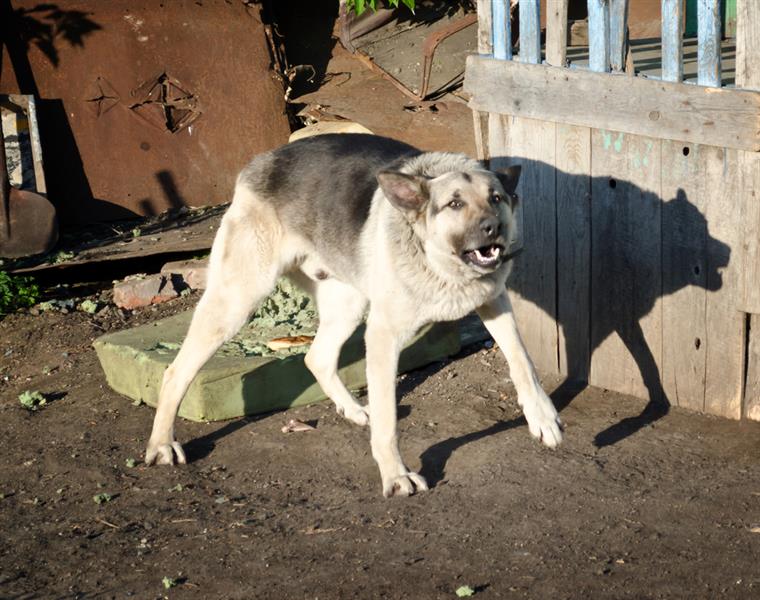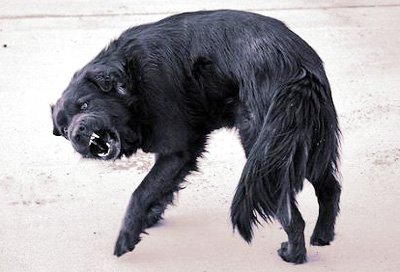Territoriality. Resource guarding. Food aggression. Owner guarding. Stranger danger. So many names for aggression – all of them just labels, boxes in which we can put “bad” dog behavior. People desperately need names for things.
 Sometimes the calls I get go like this:
Sometimes the calls I get go like this:
Caller: My dog is aggressive towards people.
Me: What makes you say he’s aggressive? Can you give me more details on that?
Caller: He lunges and barks any time someone gets too close to him.
Other times it goes this way:
Caller: My dog is scared of people.
Me: OK, why do you say he’s aggressive? What’s he doing when he sees people?
Caller: He lunges and barks any time someone gets too close to him.
Can you spot the similarity here?
Labels we give our dog’s behavior aren’t helpful; it doesn’t matter what you call it. Fear and aggression are intertwined; one is just a symptom of the other. Aggression is almost always rooted in fear, anxiety or lack of socialization. It is the manifestation of a deeper problem, one that needs to be broken down into small pieces and addressed like a puzzle.
As a general rule, dogs don’t WANT to be aggressive. It requires them to go into fight or flight mode which is not a good emotional state. When they continue to offer an aggressive behavior it’s not because they’re hard headed or not listening. They keep doing it for one reason: it works. It’s that simple.

The mail man walks up to the door. The dog barks her fool head off to save you from the murdering mail-deliverer. The man walks away. This happens EVERY DAY. Every single day, your dog scares away the person who is too close. As far as she is concerned, you now owe her your life. Why are you so mad? Where’s her cookie?!
So when someone tells you your dog is aggressive because he’s being dominant or trying to be alpha, please think about the circumstances surrounding your dog’s behavior. He is WORRIED. Aggression is a cry for help – your dog is WAITING for you to tell him how to handle these scary situations!
Don’t punish him for asking for help. Instead, just listen. Pay attention. HELP him. And if YOU need help with dog training, just ask! You can find a list of positive reinforcement dog trainers here.
